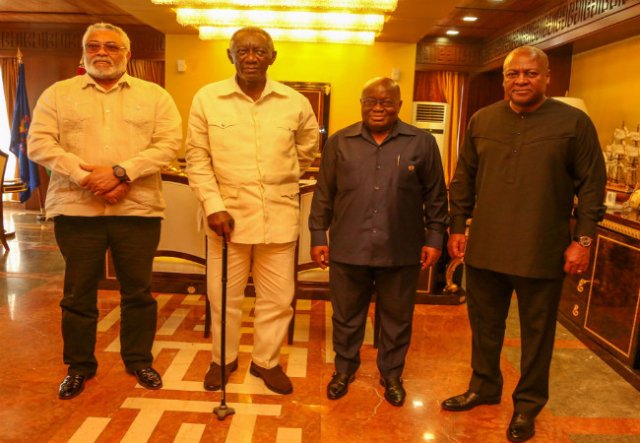The US embassy says its latest directive on the issuance visas to diplomats, present and past, for personal travel is not a new policy.
The US government through its ambassador to Ghana, Robert Jackson disclosed to Parliament, last Thursday, its decision to strip top government officials, MPs and former presidents the privileges of acquiring visas to the United States for personal tours via state protocol. They would now be expected to join the signature long queues at the US Embassy for visas.
This has been taken with a pinch of salt by sections of the public who deem the move as disrespectful especially to the country's three former Presidents.
But according to the Embassy, has always been part of "US law when a diplomat or official applies for a new visa for personal travel, that applicant must appear in person for an interview".
In a statement to clarify its position, the Embassy pointed out the policy was not new.
However, "in such limited and special circumstances as having a former president come in, we have procedures established to ensure the appropriate courtesies are extended", the statement added.Â

Read full statement
Under U.S. law, travelers seeking a non-immigrant visa for travel to the United States must generally appear in person for an interview with a consular officer.
U.S. law also designates limited exceptions under which the visa interview may be waived, such as for diplomats and officials traveling on official government business.
However, under U.S. law, when a diplomat or official applies for a new visa for personal travel, that applicant must appear in person for an interview.
This is not a new policy.
In such limited and special circumstances as having a former president come in, we have procedures established to ensure the appropriate courtesies are extended.
When a diplomat or official applies for a visa for personal travel, it is neither necessary nor appropriate for the applicant to be accompanied to the interview by protocol assistants. As a general policy, only visa applicants are allowed in the waiting room. Our communication to the Government of Ghana was meant to clarify this policy.
We will continue to work with the government to facilitate legitimate personal and official travel.





